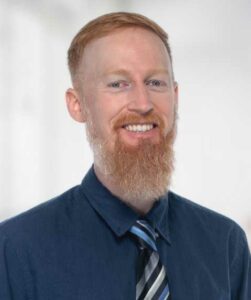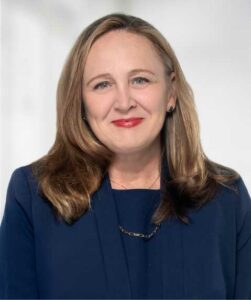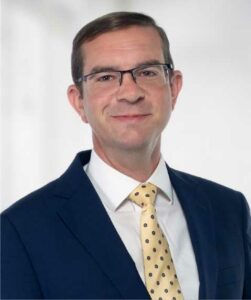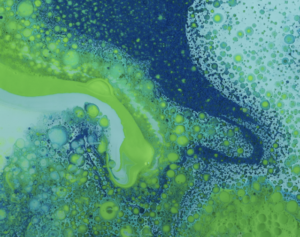Psychedelic treatments for mental health are all over the media these days. Not a week goes by when we are not asked a question from a current or an existing patient about them. At the NeuroScience & TMS Treatment Center, we began offering the first legal psychedelic-like treatment in our clinical practice for Major Depressive Disorder and Suicidality almost two years ago.
What are psychedelics?
The word “psychedelic” itself means ‘mind-manifesting.’ As it relates to mental health, it refers to either made-made drugs or naturally occurring substances that have the potential to treat mental health disorders medically and psychologically. Though it may be surprising, psychedelics are NOT new. These substances have been used in most of the world for thousands of years. However, they’ve been illegal to use outside of scientific research in the United States since the mid-1960s. This was due to a complicated mix of social, cultural, and political reasons that we will not go into here. There was also an overemphasis on some of their negative effects combined with an ignoring of the evidence that suggested they were effective mental health treatments.
Over the past few decades however, research has suggested that psychedelics, under careful medical supervision by experienced professionals, can treat a range of mental health disorders. There are Phase 3 FDA trials occurring (and some that are completed) that are projected to make MDMA an FDA-approved treatment for PTSD in 2024, and psilocybin an FDA-approved treatment for depression in the years following. Currently, Esketamine (Spravato) is the only legal psychedelic-like medication available, and it is covered by insurance for severe and treatment-resistant depression.
What are the effects of psychedelic medications?
Psychedelics often have dissociative (“out-of body” or “time / reality distorting”) effects. The substances can also produce a feeling of relaxation, empathy, a sense of well-being or even a feeling of spiritual and universal connectedness. These experiences are often described as “mystical experiences” as it is difficult to describe the experience in words.
Sometimes, often because the experiences can be very intense, these substances have side effects, such as:
- Uncomfortable reality distortions, dissociative experiences, or hallucinations
- Overwhelmingly intense emotions
- Changes in blood pressure and heart rate
- fearfulness or paranoia
How are psychedelic medications used?
Currently, the psychedelic-like medication esketamine (Spravato) is FDA-approved for use in therapeutic settings, with a physician, a therapist or a trained technician supervising to help treat severe depression and suicidality. In the future, it is expected that post-traumatic stress disorder (PTSD), addiction, and other anxiety disorders will be approved indications for this treatment, as well as for treatment with the other psychedelic medicines mentioned above and below.
What psychedelics can treat mental health disorders?
Esketamine (Spravato) is the only current legal and FDA-approved psychedelic-like medication. We are often able to get it covered by insurance in our clinic to treat severe and treatment resistant depression, or depression with suicidality.
MDMA and psilocybin are the next psychedelics most likely to be made legal and approved by the FDA, with MDMA potentially being approved in 2024.
Some of the most well-known psychedelics are:
- MDMA, (3,4-methylenedioxy-methamphetamine): the active chemical in the illegal party drug called “ecstasy” or “molly ” NOTE: these party drugs are often combined with unknown and potentially dangerous “extra ingredients.” The second Phase 3 trial for MDMA just finished for the treatment of PTSD;
- Psilocybin: the active ingredient in “magic mushrooms,” shows promising potential for treatment of addiction, depression, and anxiety and depression associated with terminal illnesses;
- Ayahuasca: a South American brewed “drink” made from a combination of a special vine and other vegetation that has shown some potential to help treat addiction, depression, and anxiety; the chemically created similar compound known as “DMT” is often grouped with this particular psychedelic
- Lysergic acid diethylamide (LSD): known as “acid”, it is presently an illegal, completely man-made, substance that alters mood, perception, and consciousness. This psychedelic does not have as much current research suggesting it can be helpful for mental health conditions (though many less well-designed research projects were performed in the 1960s).
- Mescaline (or, peyote): another naturally derived psychedelic substance. It has been used, likely for thousands of years, in spiritual ceremonies amongst indigenous peoples. It was studied in the past but is not a current major focus of research for mental health purposes.
How are psychedelics administered?
Esketamine (Spravato) is the only current legal psychedelic-like medication, and it is covered by insurance for severe or treatment-resistant depression. It is a medicine given intranasally (i.e. similar to some seasonal allergy treatments, into the nose).
Research and expert opinion suggests that the environment in which psychedelic treatments are delivered is important to their success. NeuroScience & TMS Treatment Center currently has two safe and comfortable environments for patients receiving Esketamine treatment. We are expected to open another in the fall or winter of 2023. We are currently developing a program to help make the most of your treatment experience while receiving the treatment as well as to meaningfully integrate and process your experiences after treatment. We believe that while esketamine is a powerful treatment for depression alone, it can also serve as a catalyst for making healthy changes to your lifestyle, problematic relationship patterns, as well as for learning more about yourself.
Many of the other psychedelics listed above are currently illegal and not FDA-approved for treating mental health conditions. There are only research protocols in place for how to administer them (usually also in safe, comfortable environments with trusted professionals and numerous hours of talk therapy before, during, and after the treatments occur). We expect that there will be ongoing adjustments to the treatment delivery and other developments as MDMA, psilocybin, and potentially other psychedelic compounds come into medical use in the coming years.
At the NeuroScience & TMS Treatment Center, we have several treatment options we can use, beyond common medications and therapy, to aggressively treat you for brain diseases. Learn more about our treatments and services on our Comprehensive Behavioral Health Page.
Blog Post Authors
 Ryan Oakley, MD
Ryan Oakley, MD
Board Certified Psychiatrist, East Nashville Location
After moving to Tennessee for training in 2018, Dr. Oakley is now a permanent Nashvillian transplant. He completed his undergraduate degree in the intensive Program of Liberal Studies at the University of Notre Dame and received his medical degree from the Texas A&M College of Medicine. He completed his psychiatry residency at Vanderbilt University Medical Center, he accumulated four years of experience with thoughtful pharmacotherapy and was certified in both ECT neuromodulation at Vanderbilt Behavioral Health and Professional Mindfulness Facilitation at Vanderbilt’s OSHER center. Learn more about Dr. Oakley.
 Michelle Cochran, MD, DFAPA
Michelle Cochran, MD, DFAPA
Founder & Chief Medical Officer • Medical Director, Nashville Locations
Dr. Cochran has been living and working in the Nashville area for over 25 years. She supervises the skilled Nurse Practitioners who work in our clinics. She has been offering TMS services since 2011 and lectures and consults nationally and internationally about TMS. She is Board Certified and is a Distinguished Fellow of the American Psychiatric Association. Learn more about Dr. Cochran.
 Jonathan Becker, DO
Jonathan Becker, DO
Medical Director, Brentwood Locations
Dr. Becker is a native of Tennessee, born in Memphis. He completed his undergraduate and master’s degrees in Developmental Psychology at Tulane University in New Orleans before attending Des Moines University for Medical School. He completed his psychiatry residency program at Vanderbilt University and served as a faculty member there for 7 years before transitioning to our office. While at Vanderbilt, Dr. Becker served as the medical director of the neuromodulation service from 2017-2020. Dr. Becker has also published many psychiatric articles. Learn more about Dr. Becker.

